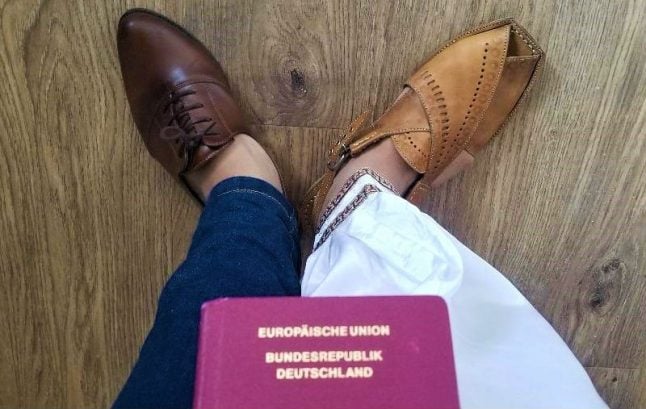Starting June 1st, the Swedish Tax Agency (Skatteverket) will begin accepting applications from people who are registered as living in Sweden with a personal identity number (personnummer), are at least 13-years-old, and can verify their identity.
“We’re absolutely ready and have done all that we can do at this point,” the Tax Agency’s Anna-Lena Österborg told The Local.
“It’s exciting. This is a whole new activity for us.”
Österborg, who has managed the ID card project, said the Tax Agency expects a wave of applications to flood in during the first few days.
Extra staff have been assigned to the 23 different offices around the country accepting applications in order to troubleshoot any possible problems.
“Since it’s the first time that any of us will be carrying out this activity, we’re going to be well-prepared,” said Österborg, although she couldn’t elaborate on any specific glitches that may be likely to occur.
In addition, Österborg urged patience from applicants who show up to file applications on the first few days in June.
“There may be long lines and application times may end up being longer than the expected two weeks,” she said, adding the agency had no concrete estimate of how many people may apply for ID cards.
Ever since early 2007, when the now shuttered Svensk Kassaservice announced it would no longer be issuing ID cards to non-Swedes, foreigners living in Sweden have been forced to turn to banks in order to obtain ID cards – and with decidedly inconsistent results.
While certain branches of some banks issued ID cards to non-Swedes, other banks refused to accept applications because foreigners were not able to adequately verify their identity.
For well over a year, the government has been wrestling with how to deal with an issue which has been a constant thorn in the side of new arrivals to Sweden who find themselves unable to obtain an ID card to help them carry out many of life’s basic functions like seeing a doctor or collecting packages from the post office.
After months of silence the government confirmed in September 2008 that the Tax Agency would take over responsibility for issuing ID cards.
And starting Monday, Tax Agency offices around the country will begin accepting applications, which must be filed in person.
“We’re also really hoping that people take time to ensure they meet the requirements before coming in to file their application,” said Österborg.
In addition, she stressed the importance of paying the 400 kronor ($52) application fee by bank- or plus-giro before showing up at the Tax Agency in person.
“Our offices don’t handle cash for security reasons,” she said.
The Tax Agency also requests that people hang onto their payment receipts to present as proof of payment when submitting their ID card application.
Also important is making sure that the applicant has an approved type of identity document, such as a previously issued Swedish identity card or passport, or an EU passport issued after September 1st, 2006.
In addition, passports from Norway, Iceland, Switzerland and Lichtenstein are also acceptable, although passports from more recent EU members Romania, Cyprus, and Bulgaria are not.
For people lacking the approved documents, it’s necessary for them to come to the Tax Agency with someone who can vouch for their identity, such as a parent, sibling, spouse, or adult child.
In certain cases, an employer can also serve as an identity witness.
“It’s really important that we make sure these documents are credible and that cards are issued to the people who are who they say they are,” said Österborg.
She admitted, however, that some cases may require additional investigation, such as cross-referencing an identity witness with the Tax Agency’s population registry to verify their relationship to the applicant, or checking that two people claiming to be a couple are registered at the same address.
“At the end of the day, we’re relying on people’s good faith,” she said.
Applicants will then be photographed at the agency’s offices, and should receive their ID cards within two weeks of filing the application, assuming everything is in order.
But again, Österborg emphasized that the first wave of applications may take somewhat longer.
“Once we’ve got everything up and running smoothly, we shouldn’t have any trouble meeting the two-week deadline,” she said.
“But we know expectations are high and want people to understand that at first, we may take a little bit more time than expected to get them their ID cards.”





 Please whitelist us to continue reading.
Please whitelist us to continue reading.
Member comments